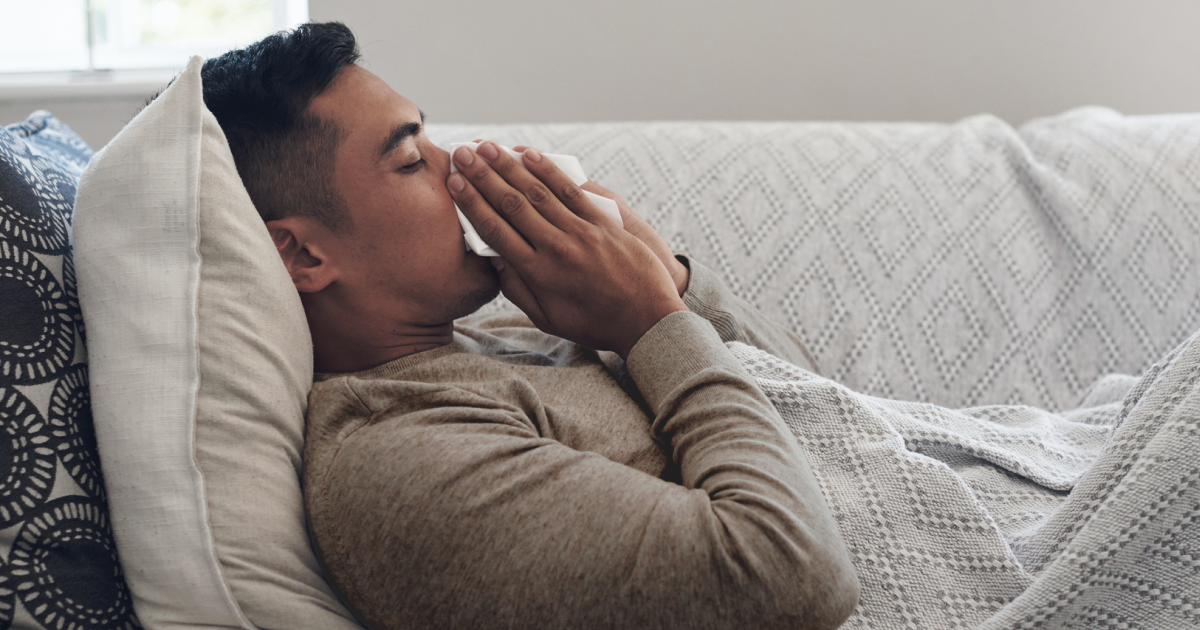
Did you know 25% of US workers don’t use their sick days each year?
Knowing when to take a sick day is important now more than ever, with employees back in the office, the arrival of cold and flu season, and the holidays coming up quickly. For those who still work remotely, the decision whether to fully take time off to rest and recover becomes trickier.
Read on to learn about the illnesses and symptoms that mean you should stay home, when to take the day off versus work remotely, the best use of your sick day(s) and when to seek medical care.
A fever is the most common symptom that signals you should stay home from work. Although fevers themselves are not contagious, the bacterial or viral infection that caused your fever likely is. If you have a fever above 100°F, the Centers for Disease Control and Prevention (CDC) recommends staying home for at least 24 hours after your fever is gone without taking fever-reducing medication.
Beyond not feeling great, being contagious is the biggest indicator that you should stay home from work. Symptoms of a contagious viral or bacterial infection include:
Although you are most contagious when your symptoms are at their worst, you are contagious the entire time symptoms are present.
Some common contagious illnesses like the flu, strep throat,COVID-19 and mono are easily tested for. If you test positive for any of these illnesses, you are contagious and should stay home!
Other contagious illnesses include:
These illnesses can be airborne or spread through personal contact (such as shaking hands),touching contaminated surfaces/objects and through contaminated food or drinks.
The recommended time to stay home with these illnesses varies based on your diagnosis and symptoms, but you should always be fever-free for at least 24 hours.
Without an evaluation from a healthcare provider, it can be difficult to know for sure which illness you have. When in doubt, visit your nearest vybe for answers.
If you are in close contact with someone in your household who is sick, it’s best to stay home – even if you feel fine. (Remote work is ideal for situations like this, when available.) You could be symptom-free for days while unknowingly passing along an illness to others in the office.
If you must go to work, wear a mask and avoid sharing surfaces or personal items with your co-workers, such as doorknobs, desks, computer keyboards, or pens/pencils.
Be sure to wash your hands frequently with soap and warm water. Nearly 80% of infectious diseases are spread through touch, making hand washing one of the simplest ways to stop the spread of germs at both work and home.
If you feel up to it, it’s fine to work from home, but here are some things to keep in mind:
Not sure you’ll be productive? Taking a sick day might be more beneficial. Studies show that both lack of sleep and stress can weaken your immune system, prolonging your recovery time. While a packed schedule may make it seem impossible to take a sick day, sometimes self-care has to be your top priority – it takes proper rest to recover.
Be sure to notify your supervisor or team ASAP when you need a sick day, and provide a return date when possible.
`
If you take a sick day, you need to stop working – seriously. Many people find it hard to stay away from their phone or emails, even when they’re technically off work. You called in sick for a reason, so take advantage of this opportunity to rest and recharge.
Some companies combine sick days and vacation days into PTO (paid time off). Others have separate buckets for each. If so, use your sick days when you are truly sick, and save your PTO days for fun.
You should seek medical care right away if you have:
Deciding when to take a sick day can be complicated, but choosing where you go for care doesn’t have to be.
vybe urgent care is open seven days a week with extended hours to diagnose and treat illnesses. We provide testing for flu, strep throat, COVID-19, and many others and can also prescribe medication when appropriate.
FIND YOUR VYBE